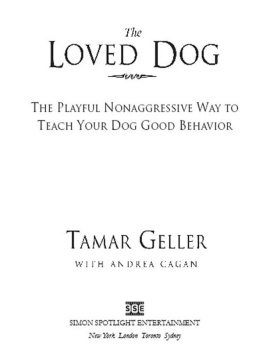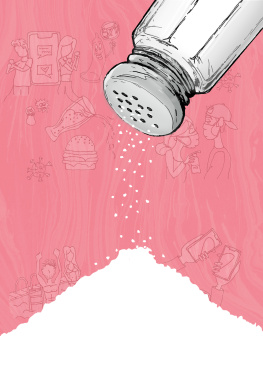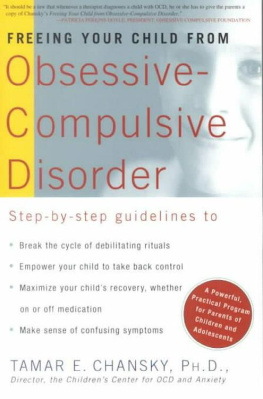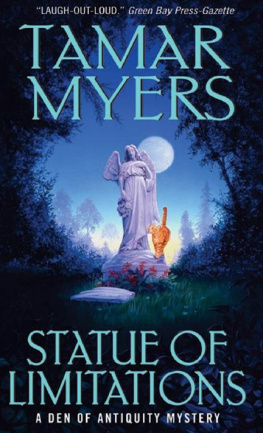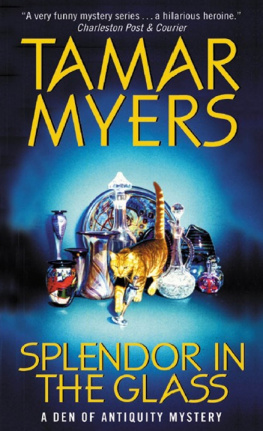ABOUT ME
Where I grew up, in Israel, you werent considered cool just because you were pretty or had the latest Louis Vuitton bagfor us, it was all about melding with nature. My weekends were usually spent on long hikes through the wilderness, along the flowing creeks of the Golan Heights, over the rocky peaks of the Galilee, and across the majestic desert in the south.
We named every plant and tree we encountered, learning which ones were good for healing or nourishment and which were poisonous and to be avoided. We studied the patterns left by snakes in the desert, reconstructing the dramas of hunter and prey that had taken place the night before. In the springtime, we could hike to the wild fig trees around Jerusalem, spending hours stuffing ourselves with the juiciest figs imaginable, courtesy of Mother Earth.
These joyous experiences existed in stark contrast to the dramas that I lived through at home. My mom and dad, bless their hearts, were a horribly mismatched pair. Divorce was uncommon in those days, so they fought constantly and cheated on each other. The only thing that brought them together was the arrival of a common enemy, their firstborn child: me. Having a child made them feel even more stuck than they had before.
So you can imagine why nature provided such an important refuge for me. After Id spent time in the Israeli Armyan intense stint as an intelligence officer working with Special ForcesI was thrilled to have the opportunity to return to the desert, this time as an assistant to a research team studying the behavior of wild animals. In nature, I felt most connected to myself, my heart, and my soul. In nature, I found my peace.
While studying a desert bird called the zanvanim, I met a man who was researching wild wolves. He showed me how to drop a dead animal in a wolf feeding station to get a front-row seat for one of the deserts most amazing shows. I immediately became hooked, spending hours sitting in the deafening silence of the dry desert floor, until the wolves arrived. From my vantage point, I watched them play out their grooming and bonding rituals, social hierarchies, and the reinforcement of their hunting skills.
By play out, I mean exactly that: Most of what they did was play. Real aggression was rare and short-lived, ending quickly when one wolf submitted to another, rolling over onto his back and writhing like a worm. The victor might respond with a few menacing growls, but always accepted the losers apologies, allowing him to lick his ears or lie down beside him.
I came to see the natural genius in this ritual. It wasnt harsh, painful, or scary, and had little to do with our often flawed conception of a dominant alpha. It was more like a dance, one that quickly restored peace within a family while staying true to the love that bound them.
I had a couple of unruly dogs at home and decided to see if I could incorporate some of the same ideas into my relationship with them. Those ideas eventually evolved into the Loved Dog Center, a cage-free boarding facility in Los Angeles, California, and The Loved Dog coaching philosophy that Ive used successfully to create amazing bonds and inspire fantastic behavior from all kinds of unmanageable dogs and their loving owners.
I also incorporated what I learned into my nonprofit program Operation Heroes & Hounds, where we ask returning GIs to coach orphan dogs (shelter dogs) in The Loved Dog Method. The wolf pack camaraderie, loyalty, and sense of purpose are not that different from what GIs experience while fighting for our country, and theres a real sense of loss upon their return to civilian life. Coaching grateful dogs provides an opportunity for miracles to happen. In a short period of time we see real joy in these war veterans eyes, as well as improved sleep patterns and reduction of prescription drug intake. Thank God for that time I got to spend with the wolves.
APPENDIX A
PUPPY FACTORIES (PUPPY MILLS)
Its an image so strange and horrifying its hard to believe that it could be real: Justin Scally, wearing a gas mask to allow him to breathe through the horrific stench of urine, running out of a building with as many miniature poodles as he can carry. Outside, volunteers check on and comfort the poor dogs before transporting them to an animal shelter, where a medical staff and many dog lovers are waiting for them. For Justin, these kinds of scenes are routinejust another successful raid on a puppy factory, saving several hundred more dogs from unbelievable abuse.
As an Israeli whose family members were murdered in the Holocaust, I grew up hearing about the horrors that American soldiers encountered when they liberated Jews from the camps in Poland and Germany. Unfortunately, a version of these camps still exists today, in America of all places, not for people, but dogs. Its very frequent that Justin, who works for The Humane Society of the United States (HSUS), goes into one of these horrible places to free the captives inside.
There are hundreds, sometimes thousands, of dogs in each of these puppy factories. The wire cages are stacked on top of each other, often five high, ensuring that any dog who isnt on the top row will get peed and pooped on for years. Theres no professional veterinary care. Many of the dogs have missing teeth, tongues that hang from the sides of their mouths, untreated infections, and broken limbs. Theyre kept from barking by painful muzzles that limit their movement, or by amateur surgeons (often the breeders themselves) who snip their vocal chords without anesthesia. These dogs live lives devoid of love, affection, and healthy socialization. Its not uncommon for them to remain in these cages for ten years or more.
The dogs have only one purpose: to breed. They are kept in a near-constant state of pregnancy, producing litter after litter of pups, usually delivered by C-section, often without anesthesia. The products of these factories are sold to pet stores for an average of $200 to $300 per pup. The pet stores sell them to an unsuspecting public for thousands of dollars more. Its a very lucrative business.
Pennsylvania, home to many of these puppy factories, recently passed a state law prohibiting breeders who arent veterinarians from snipping vocal chords and surgically removing litters from birthing mothers. In many more places, however, these practices continue. The USDA, who is supposed to oversee the puppy industryyes, puppies are considered agriculturedont have enough inspectors to monitor every facility. These poor creatures rely on the HSUS and Justin Scallys long list of dogs to be rescued.
No one likes to see sad videos, but I recommend that everyone watch just one of these raids to get a real sense of what is going on in the puppy factories. Its tough to watch, but also heartwarming to see dozens of volunteers carrying frightened dogs out of their cages and into the arms of loving people, promising them that, from this day on, they will be loved and cared for. That they can relax. That people are good and can be trusted.
I admire Justin Scally for saving these animals. He doesnt sleep much anymore, plagued by nightmares created by what hes seen. He spends his time speaking up on behalf of these poor animals, testifying on cruelty cases as well as teaching law enforcement and animal care professionals all over the country. But his work is not enough. These practices will never stop until people stop buying what these factories are selling: the cute puppies that play so sweetly and innocently in the windows of pet stores around the country, unable to speak about the conditions and abuse their parents have had to endure.
The first step is to never, under any circumstances, buy a dog from a pet store that isnt selling rescued dogs, as some now do. The stores that dont are just a pretty front to an abomination. I cant believe society can accept it. Its barbaric, and we need to talk about it, to shout about it from the mountaintops.


